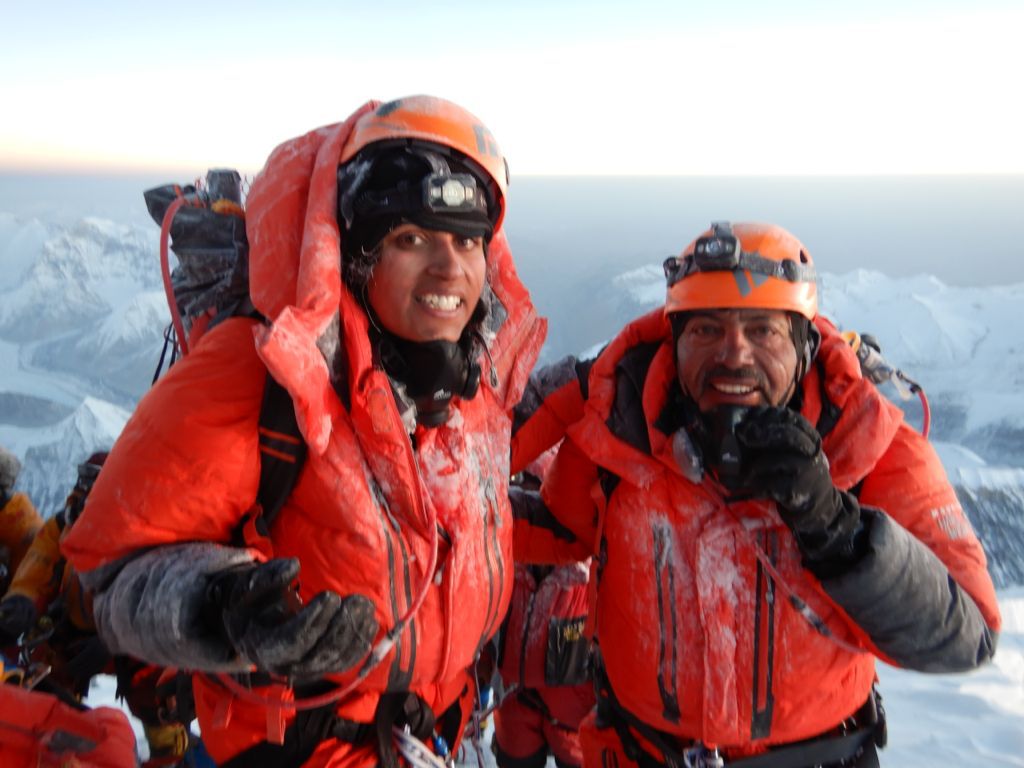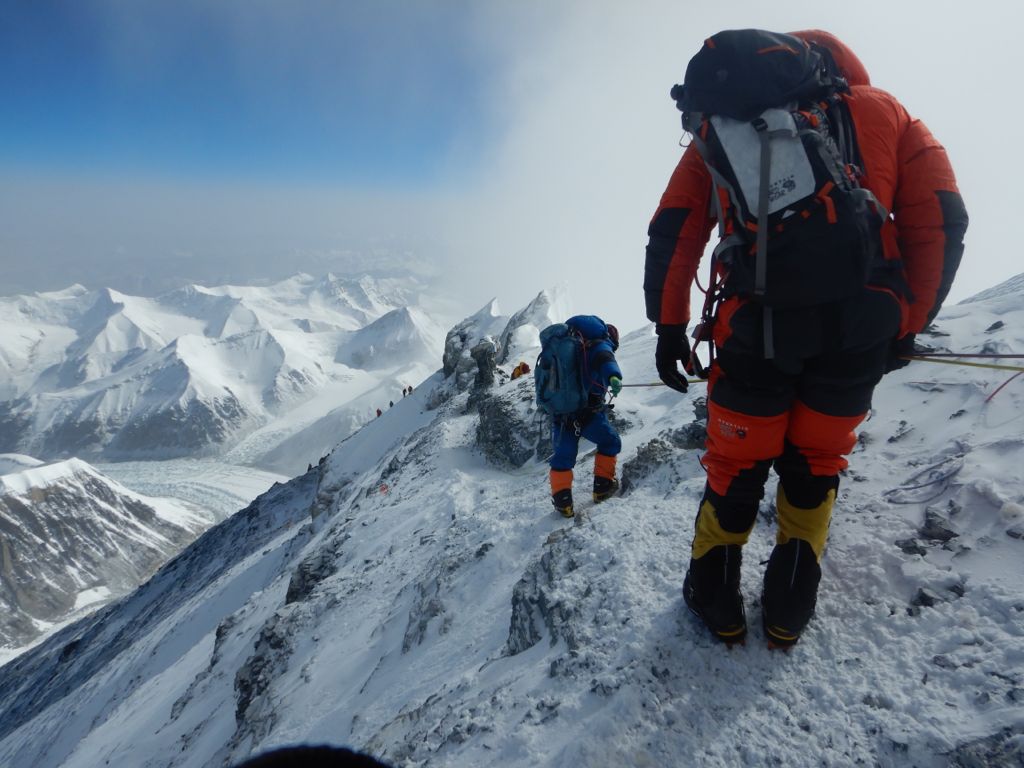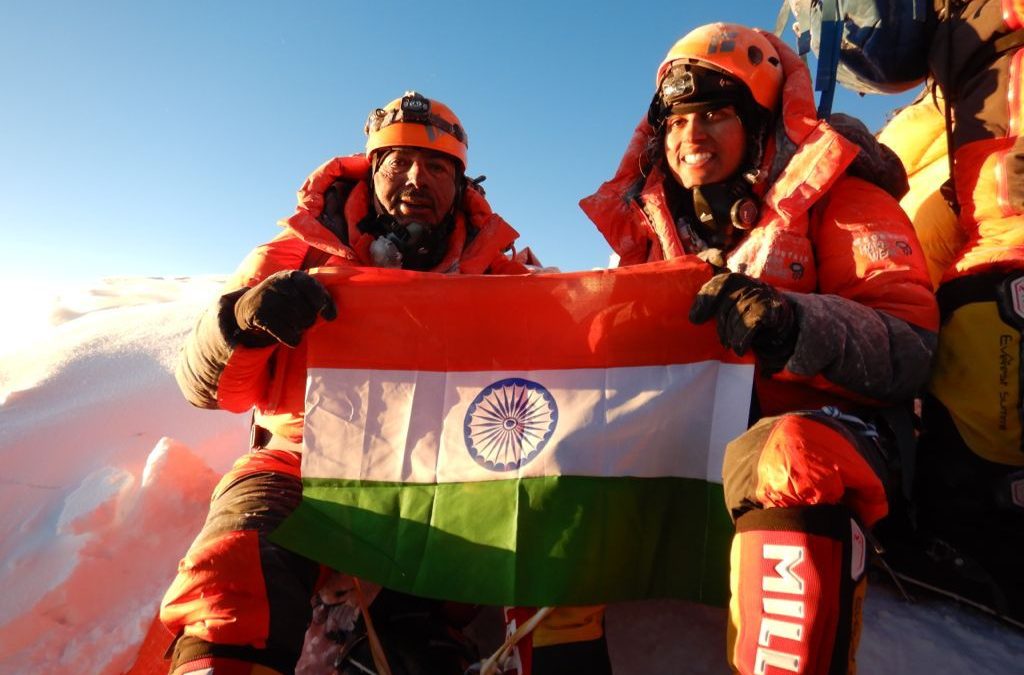All want to be on top of the world, but when you are literally there at the peak, looking around, it just binds you to the roots stronger. This is what Deeya S Bajaj learned when she scaled Mt. Everest with her father. Deeya, 27, is a mountaineer, and a social activist who did cross country skiing when she was 17 and raised money for the education of a group of girl children, back in India. Deeya is a passionate traveler pursuing her higher studies in the US right now. With the world shutting down, and how the lifestyle of being a mountaineer has changed her, she talks to India Voyage about everything! Read on to know more.
Q. So your journey started very early in your life, so how different was your childhood from the regular people?
Fortunately, I have had parents who were always into adventure sports not just for passion but professionally as well. So, I grew up in a very different environment. They owned an adventure sports company called Snow Leopards. All my family holidays were full of trekking, going up this mountain, or doing similar things. I would say, I climbed the mountain on my father’s back, even before I knew how to walk.
But, later as I grew up interests changed, and I realised this is something that I would like.to keep doing and now, here I am.

Q. All your expeditions and mountaineering work have been driven by any social cause. Was that something that happened organically, or a conscious decision?
This was a conscious decision. I grew up where I was very fortunate and I always knew the privilege I had. So, I always knew what I can do and what I cannot do. But, I never saw adventure as a part of this social work, while I did acknowledge the privilege I had.
When I was 17, right before one of my biggest expeditions, where we were going on ice skiing across Greenland. We were the first father-daughter duo to do something like this. There was of course a lot of training. So one day after training I visited one of the children’s homes my parents helped and I realized that it was only for boys. When I asked the management, they just simply said they did not want girls. So, I thought to myself, what is going to happen to the girls? I told them they need to bring in girls, and the condition was I will be raising funds for them. That is how the cause became part of my expedition. I raised 10 lakhs for the 550 kilometers I skied, as everyone can choose to pay some amount for every kilometer I skied.
This is when I understood I could use the attention I get, to do something good. So it was clear for me then itself that I have to do something with every expedition I do. And, you know the feeling is great. It is less about the records and the feeling you get while on the adventure, but more about what you can do with that. It is to spread awareness. When people see you doing good, they lend their hands too, and with their support, we can do so much more.
Q. As you said, you collaborated with people and networked to raise funds. How is that process like?
We did not contact NGOs and all. It was contacting my network. Contacting my friends, their parents, people my parents knew, and more. Because, even if they pay one rupee per kilometer, that is a huge deal.
That is when I realised there is nothing more powerful than a team, and a core team that supports you and loves you at all times. People who are genuine well-wishers, who stand by you and you stand by them. And, this network keeps spreading. Having a strong network is very important.
Q. How do you prepare your lifestyle mentally and physically healthy?
All these expeditions that I have done have had a great impact on my lifestyle, yes it is a lifestyle. But, I have learned to lead a simple life with minimalist needs. I don’t have many materialistic things to survive. I know I can live simple with the basic things I have and go about that. I also prefer not to waste a lot of things on myself. Yes, to treat oneself with the little things once in a while is fine but I do know how to do without them.

Q. How hard has the pandemic been on you? Do you miss traveling?
While you go on these extreme trips and conditions, you become very very adaptable to nature. Yes, it is easy to come back and tell cool stories, but you are literally living in a tent and it is an adventure. You learn to live life minimally and become more and more aware of your surroundings. So, to me, the pandemic was easy that way to stay in your room all day and work from home. That is the biggest takeaway for me from all of these years of traveling. I have actually learned to focus on bigger things than concentrating on the little things of life. Yes, I do miss traveling and hopefully, that will happen this year sometime as I am in the US.
Q. You've always stood by the notion that nature is beyond human power, but we still abuse nature in all ways we could. How do you think this needs to be stopped and managed?
Yes, now we really need to wake up to the problem and first of all realize that there is a problem. We live in denial and that is a bigger issue. And, I keep saying that every small thing counts. Even if you are giving away your waste for recycling to a junk shop, that would work. Now, the issue is serious and we need to be very careful now.
Like, a lot of places we go to, we get to see the problems first hand. Say, when we went for the skiing expedition in Greenland, we went Sea Kayaking the day before, and the locals there told us there has been a rise in the number of mosquitoes in the area there, as now the temperatures have increased so much that they can survive there now.
We see so many signs around us every day. Now, actually, we are in global weirding where we have abnormal temperatures across the world. It is a sign of the world to tell us, ‘Hey! I am getting sick!’ I would just say that read up, and you need not change your life entirely, but little changes would do.
In conclusion, Deeya just tells all of us that it is necessary to have a close-knit group that acts as your support system in your life. Because that’s what will stay forever. She also urges everyone to do their little bit for the world and society. Deeya is looking forward to finishing their quest to finish climbing the highest peaks in every continent next year. So, far she has conquered six of the seven summits Kilimanjaro, Aconcagua, Vinson, Elbrus, Kilimanjaro, Mount Kosciuszko and Mount Everest.


